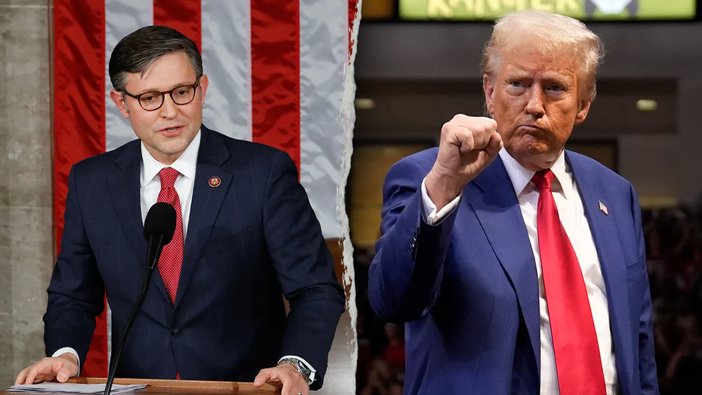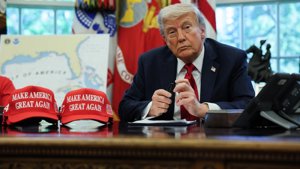
Congress Approves Trump’s ‘Big, Beautiful Bill’ Ahead of July 4
Congress passes Trump’s sweeping agenda bill after all-night sessions, meeting the July 4 deadline and securing narrow GOP unity.
Trump’s Sweeping Legislation Passes After Dramatic Vote
In a historic marathon of overnight debate and negotiation, Congress officially passed President Donald Trump’s signature legislative package—dubbed the “big, beautiful bill”—on Thursday, just in time for the Republicans’ self-imposed Fourth of July deadline. The measure, covering broad reforms in tax policy, border security, defense, energy, and federal spending, now heads to Trump’s desk for his signature.
The bill represents the administration’s first major legislative victory under a unified Republican government. It narrowly cleared the House in a 218–214 vote, with all but two Republicans—Thomas Massie of Kentucky and Brian Fitzpatrick of Pennsylvania—supporting the measure after extended negotiations and closed-door sessions. The Senate passed its own version by a similarly slim margin, forcing further last-minute changes and political maneuvering in the House before final passage.
Speaker Mike Johnson, R-La., and President Trump were both highly engaged in the effort, personally lobbying Republican holdouts throughout the night. Johnson called the bill “urgent,” emphasizing its role in fulfilling the president’s campaign promises and setting a new legislative course for the nation. “The President is very engaged. He was very helpful in the process. He helped answer questions and articulate his vision,” Johnson told reporters. Trump, meanwhile, used social media and political leverage to urge GOP members to fall in line, declaring, “For Republicans, this should be an easy yes vote. Ridiculous!”
Internal GOP Divisions and Narrow Passage
The vote exposed both moderate and conservative anxieties within the House GOP. Some moderates voiced concern over Medicaid reforms and shifting costs to states, while conservatives argued that the bill did not go far enough in cutting federal spending. Democrats, meanwhile, decried the process as rushed and accused Republicans of working “under cover of darkness.” House Minority Leader Hakeem Jeffries criticized the timing of the debate, questioning why “debate begin at 3:28 a.m. in the morning.”
Despite these rifts, House leaders kept the floor open for hours, ultimately persuading enough Republicans to back the bill. Rep. Buddy Carter, R-Ga., reflected the prevailing attitude, saying, “This is something we’ve got to do.” As the bill advanced, only Massie and Fitzpatrick voted no—Massie citing the bill’s cost and impact on the national debt, and Fitzpatrick objecting to Senate changes he said weakened Medicaid protections for his Pennsylvania constituents.
On the Democratic side, opposition was universal, with no members crossing the aisle to support the $3.3 trillion package. Jeffries and others labeled the bill a “giveaway to the wealthy” and a threat to working-class Americans, while Republican leaders argued it prioritized middle-class tax relief and essential reforms.
Key Provisions and Political Fallout
The new law will permanently extend lower income tax brackets from the 2017 Tax Cuts and Jobs Act, introduce new deductions for tipped and overtime wages, roll back green energy credits from the Inflation Reduction Act, boost national defense and border enforcement funding, and raise the debt ceiling by $5 trillion to avoid a federal default. New work requirements for Medicaid and food assistance programs are also included.
Rep. Mark Green, R-Tenn., cast his final vote in Congress in favor of the bill, fulfilling his promise to stay until Trump’s border security measures passed. Green, who chaired the House Homeland Security Committee, announced his resignation effective July 20, having overseen key border policy provisions in the legislation.
Speaker Johnson hailed the “beauty of unified government,” citing the collaboration between Congress and the executive branch as central to the bill’s passage. “That coordination is going to yield great results for the folks,” Johnson said. Vice President JD Vance and Cabinet members were also credited with engaging lawmakers throughout the process.
Conservative groups and party leaders praised the bill for delivering on tax relief, defense spending, and regulatory rollbacks. Club For Growth CEO David McIntosh called it a “setup for a new Golden Age,” while Republican Study Committee Chair August Pfluger, R-Texas, highlighted its role in putting “Americans first.”
As the legislation awaits President Trump’s signature, the administration and congressional Republicans are touting the bill as a cornerstone achievement—one expected to shape economic, social, and security policy for years to come.






